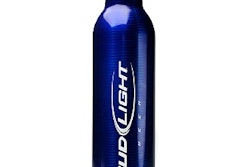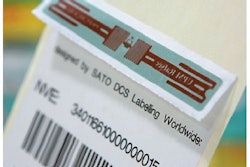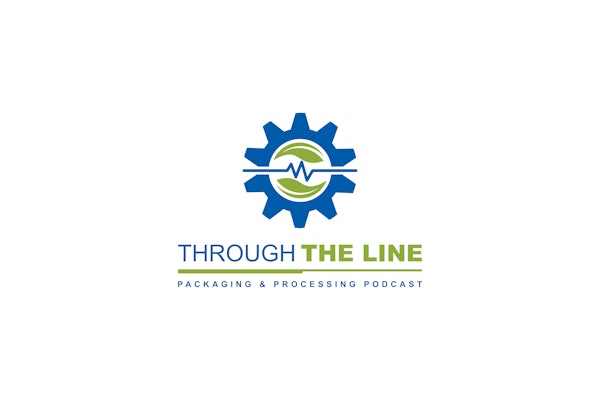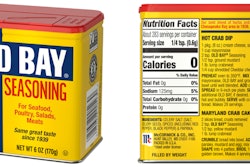Just as major food companies are pursuing the use of qualified health claims on their packages, the Food and Drug Administration (FDA) is considering ways in which it can make those claims easier to understand. That was the point of the November 17 meeting in College Park, MD, where the FDA planned to get input from the public on how it can make these claims easier to understand.
The meeting took place just as Pompeian Olive Oil, Baltimore, MD, had finished relabeling of its olive oil bottles designed to take advantage of a qualified health claim the FDA approved in November 2004. The substance of the claim links consumption of olive oil—pure, in salad dressing, vegetable oil spreads and shortening—to a reduction in risk of coronary heart disease.
But like all the other 11 qualified health claims the FDA has approved in the past few years, the health claim copy must be accompanied by a detailed disclaimer.
“The real problem with these qualified health claims is that you can’t just put ‘heart healthy’ on your olive oil,” explains Frank Patton, president of Pompeian. “You have to include a whole paragraph of disclaimer, and there are requirements for type size for the disclaimer in conjunction with the size of the claim itself. You have to find room on the label.”
Confusing to consumers?
The claims are equally imposing for consumers to understand given the FDA-dictated disclaimers, which differ depending on the health claim involved. That was underlined by a study the FDA released in September, which served as the basis for discussion at the November 17 meeting in College Park.
In the study, the FDA showed 1꽸 volunteers four hypothetical dietary substance/disease relationships (calcium/osteoporosis, omega-3 fatty acids/heart disease, selenium/cancer, and lycopene/cancer) that spanned a range of scientific certainty. Participants were shown mock-up labels for familiar types of products (orange juice, tuna, eggs, and tomato sauce) that carried a health claim. In a nutshell, the study showed that consumers were thoroughly confused by the claims.
The meeting took place about six weeks after The Solae Co. temporarily withdrew its year-old application for a qualified health claim linking soy protein to a reduction in risk from certain cancers. Greg Paul, director of health and nutrition for Solae, says the company wants to restructure the application “so it will be in-line with the FDA’s current qualified health claim process,” which, he implies, has been evolving since Solae first submitted the petition.
Numerous individuals and some groups have written to the FDA opposing a soy protein/cancer claim based on evidence they cite demonstrating that consumption of soy protein actually increases the risk of cancer.
Decision delays
Not only have food and dietary supplement marketers been confused by what the FDA expects in an application—the agency published only an interim guidance in 2003—but they have been frustrated by repeated delays in agency decision-making.
A few days after Solae temporarily withdrew its application, the FDA informed American Longevity, Inc., of its fifth delay in making a decision on American’s application. The company filed its application January 21, 2004, applying for a total of 30 separate qualified health claims linking consumption of lycopene, tomatoes, and lycopene-containing tomato-based foods to reduced risks of all sorts of cancers.
Both the Campbell Soup Co. and H.J. Heinz Co. are backing that application. But Campbell believes any qualified health claim for lycopene should be carefully qualified. “We urged FDA to distinguish between the support behind a whole foods message as opposed to a message that focuses on one component of the tomato as the easy explanation for the cancer risk reduction that we’ve seen, when that may not be the case,” explains Juli Mandel Sloves, manager, brand communications at Campbell.
Heinz is pursuing the lycopene claims via a Lycopene Health Claim Coalition the company has established that also includes LycoRed Natural Products Industries, The Morningstar Co., and the Prostate Cancer Foundation. Heinz already highlights the presence of lycopene on its ketchup labels, but limits claims about health benefits to lycopene’s role as an antioxidant.
Level of scientific evidence
Companies apply for qualified health claim copy when they do not have enough data to meet a standard of “significant scientific agreement among qualified experts that the claim is supported by the totality of publicly available scientific evidence,” which is what the FDA needs to grant an unqualified health claim, also called an authorized health claim.
Because it is only partially supported by scientific evidence, a qualified health claim must be accompanied by a disclaimer or other qualifying language that accurately communicates the level of scientific evidence supporting the claim.
The FDA has approved copy for 12 qualified health claims beginning in 2000 for food supplements. In 2002, it extended the opportunity to foods, too. Those claims deal with cancer and cardiovascular disease risk, cognitive function, and neural tube birth defects.
For example, the text of the olive oil claim is: “Limited and not conclusive scientific evidence suggests that eating about 2 tablespoons (23 grams) of olive oil daily may reduce the risk of coronary heart disease due to the monounsaturated fat in olive oil. To achieve this possible benefit, olive oil is to replace a similar amount of saturated fat and not increase the total number of calories you eat in a day. One serving of this product contains [x] grams of olive oil.”
Two consultants who have worked on qualified health claim petitions agree that the FDA has been slow to make decisions as well as being unreasonable in the yardsticks it has chosen, which has led to the jumble-worded disclaimers. Jim Barnett, Jr., a senior consultant working with AAC Consulting Group, explains, “The FDA has used a very stringent process where they have looked for almost substantial scientific agreement. They have gone after the low-hanging fruit.”
Jonathan Emord, whose firm Emord and Associates filed the lawsuit that forced the FDA to consider qualified claims, has a darker view of FDA’s actions. He believes that the FDA is using a stringent standard, and attaching all sorts of conditions to approved claims, because the FDA is “utterly dominated by those who wish to protect pharmaceutical interests against any competition.”
Emord and Associates represents many of the companies applying for claims, including the one behind the tomatoes and lycopene claim.
























